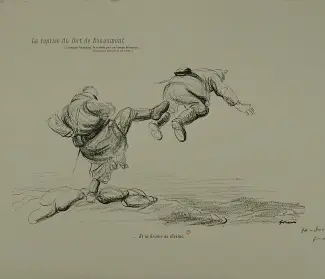Check our opening times and prices
Buy your ticket in advance
Prepare your visit to the battlefield

Fort Douaumont, which had fallen into the hands of the German army on 25 February 1916 absolutely had to be recaptured. In October 1916, this was one of the French general staff’s priorities. A grand plan was put together for the attack. Artillery firepower was scaled up and the best infantry regiments were mobilised. One of them was the Colonial Infantry Regiment of Morocco, which had received several decorations and was known for the pugnacity of its soldiers.
The regiment consisted of three battalions. The 8th Battalion was commanded by Pierre Nicolaï. He and his men were entrusted with the most important part of the operation: entering and capturing the fort on Tuesday 24 October 1916. After four days of preparatory fire, the attack was launched at 11.40am. At the front of his battalion, commander Nicolaï launched his attack from the Vignes Ravine. But thick fog hampered their progress. Visibility was no more than 20 metres. Nicolaï had to rely on the compass he was holding in his hand. It told him to turn sharply to the left. They trekked on and on – surely they should have reached the fort by now? Commander Nicolaï started to have doubts, and stopped his battalion. Where were they?
Suddenly, a German soldier captured by other French detachments emerged out of the fog, coming across Nicolaï and his men. Quickly, the commander asked him where Fort Douaumont was. Nicolaï then realised that he and his battalion were a long way left of their target - they had been walking in the wrong direction since the beginning. The needle of his compass was giving a false reading due to the metal box holding his gas mask, and it was pointing in the wrong direction.
The battalion succeeded in reaching its target despite the delay. Nicolaï and his men completed the recapture of Fort Douaumont with the help of some sappers. They took a number of prisoners, including the German officers commanding the fortification.
A few days later, President Poincaré presented Nicolaï with the Legion of Honour from this achievement. He enjoyed his recognition for only a short time however; he was killed near Louvemont on 15 December 1916.